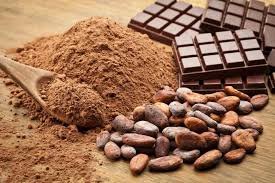Exploring the Top 10 Cocoa Producing Countries in the World
Cocoa, often referred to as the “food of the gods,” is not just a treat for the taste buds but also a vital component of many economies around the world. In this article, we delve into the top 10 cocoa-producing countries globally, shedding light on their significance in the cocoa industry.
1. Ivory Coast: Leading the Global Cocoa Production Ivory Coast, also known as Côte d’Ivoire, holds the crown as the world’s largest cocoa producer. Its tropical climate and fertile soil make it ideal for cocoa cultivation, contributing significantly to its economy.
2. Ghana: The Second Largest Producer Following closely behind Ivory Coast is Ghana, another West African nation renowned for its cocoa production. Ghana’s cocoa industry plays a crucial role in its economic development and sustains the livelihoods of many farmers.
3. Indonesia: A Rising Player in the Cocoa Market Indonesia has emerged as a prominent player in the global cocoa market, thanks to its suitable climate for cocoa cultivation. The country’s cocoa industry continues to expand, positioning it as a key contender in cocoa production.
4. Ecuador: Known for Fine Flavor Cocoa Ecuador stands out for its production of fine flavor cocoa, prized for its distinct taste and aroma. Despite being a relatively small producer compared to Ivory Coast and Ghana, Ecuador’s cocoa is highly sought after by chocolate connoisseurs worldwide.
5. Nigeria: A Major Contributor to Global Cocoa Supply Nigeria’s cocoa industry is a significant contributor to the country’s agricultural sector and economy. With concerted efforts to increase productivity and improve quality, Nigeria aims to strengthen its position in the global cocoa market.
6. Brazil: Diverse Cocoa Cultivation Brazil’s vast landmass and diverse ecosystems enable the cultivation of various cocoa varieties. While not among the top cocoa producers, Brazil’s cocoa industry plays a vital role in the country’s agricultural landscape.
7. Cameroon: Sustaining Cocoa Production Cameroon’s cocoa industry faces challenges such as aging cocoa trees and fluctuating prices. However, concerted efforts are underway to sustain cocoa production and support the livelihoods of cocoa farmers in the country.
8. Peru: Preserving Biodiversity in Cocoa Farming Peru’s cocoa production is characterized by its commitment to biodiversity conservation and sustainable farming practices. The country’s efforts to promote organic cocoa cultivation have garnered attention globally.
9. Dominican Republic: Fostering Cocoa Export The Dominican Republic boasts a long history of cocoa cultivation and export. Despite facing challenges such as aging cocoa plantations, the country remains a significant player in the global cocoa market.
10. Colombia: Nurturing Specialty Cocoa Colombia’s cocoa industry focuses on producing high-quality, specialty cocoa beans prized for their unique flavor profiles. The country’s emphasis on quality over quantity has positioned it as a niche player in the global cocoa market.
Conclusion: The top 10 cocoa-producing countries in the world play pivotal roles in shaping the global cocoa industry. Understanding their contributions and challenges is essential for anyone interested in the dynamics of cocoa production and trade.

Why this News is Important:
Significance of Cocoa Production in Global Economy: The production of cocoa holds immense economic significance for both producing countries and the global chocolate industry.
Impact on Agricultural Sector and Livelihoods: Cocoa cultivation sustains the livelihoods of millions of farmers worldwide and contributes to the development of agricultural sectors in producing countries.
Implications for Trade and Market Dynamics: Changes in cocoa production levels and market trends can have far-reaching implications for international trade and chocolate prices.
Environmental and Sustainability Concerns: The cocoa industry’s sustainability practices and their impact on biodiversity and environmental conservation are increasingly scrutinized on a global scale.
Future Trends and Opportunities in Cocoa Industry: Understanding the top cocoa-producing countries and their strategies provides insights into future trends and opportunities in the cocoa industry, crucial for policymakers and stakeholders alike.
Historical Context:
Origins of Cocoa Cultivation: Cocoa cultivation traces back to ancient civilizations in Mesoamerica, where it was cultivated by the Olmecs, Mayans, and Aztecs for its ceremonial and medicinal purposes.
Colonial Influence and Expansion: During the colonial era, cocoa cultivation spread to regions like West Africa and Southeast Asia, driven by European demand for chocolate.
Modernization and Globalization: In the 20th century, advancements in agriculture and transportation facilitated the expansion of cocoa production to new regions, shaping the modern cocoa industry.
Key Takeaways from “Top 10 Cocoa Producing Countries in the World”:
| Serial Number | Key Takeaway |
|---|---|
| 1 | Ivory Coast and Ghana lead global cocoa production. |
| 2 | Indonesia and Ecuador are emerging as key cocoa producers. |
| 3 | Sustainability and quality are priorities in cocoa farming. |
| 4 | Challenges such as aging trees and fluctuating prices persist. |
| 5 | Understanding cocoa production dynamics is crucial for global trade. |
Important FAQs for Students from this News
Q1: How does cocoa production contribute to the economy of producing countries?
A: Cocoa production significantly contributes to the economies of producing countries by providing employment opportunities, generating export revenue, and supporting agricultural development.
Q2: What are some challenges faced by cocoa-producing nations?
A: Some challenges include aging cocoa trees, fluctuating market prices, pest and disease outbreaks, and environmental sustainability concerns.
Q3: Why are Ivory Coast and Ghana considered key players in the cocoa industry?
A: Ivory Coast and Ghana are considered key players due to their large-scale cocoa production, favorable climatic conditions, and significant contributions to global cocoa supply.
Q4: What role does sustainability play in cocoa farming?
A: Sustainability practices in cocoa farming aim to ensure the long-term viability of cocoa production by promoting environmental conservation, ethical labor practices, and fair trade principles.
Q5: How does the quality of cocoa beans impact the chocolate industry?
A: The quality of cocoa beans directly influences the taste, aroma, and overall quality of chocolate products, making it a crucial factor for chocolate manufacturers and consumers alike.
Some Important Current Affairs Links

















